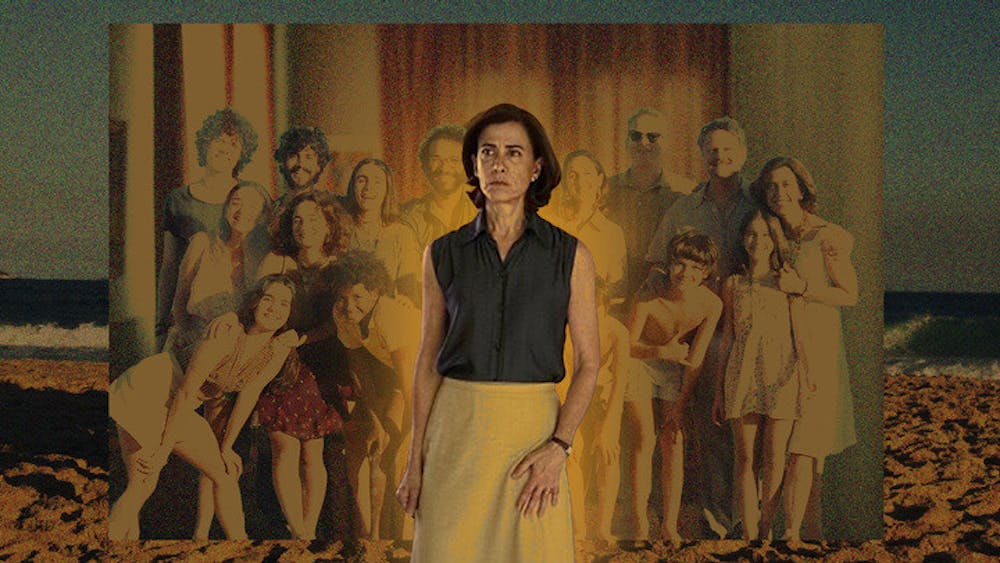In a small mall in Brazil, a movie theater buzzes with life as a long line snakes past the popcorn stand, the ticket office, and all the way out to the theater's exit. Among the crowd, teenagers stand side by side with their grandparents—groups rarely drawn together by modern films. But the 2024 Oscar–nominated drama I'm Still Here has become a unifying force in Brazilian cinema, a phenomenon the country hasn't seen in years.
I’m Still Here is a drama directed by Walter Salles that stars two of Brazil’s most beloved actors, Fernanda Torres and Selton Mello. Adapted from Marcelo Rubens Paiva’s book of the same name, the film is based on the real–life story of Paiva’s family. It follows the journey of Eunice Paiva, a wife and mother of five who must rebuild her life after the devastating loss of her husband, Rubens Paiva. Taken from their home, imprisoned, and ultimately assassinated, he becomes one of the countless victims of the military dictatorship that ruled Brazil for two decades.
Salles’ film doesn’t just focus on the grand tragedies of the era, the death, torture, and censorship that defined life in the 1970s. Instead, he turns his lens toward the everyday life of the Paiva family. Before the dictatorship tears their lives apart, we are given the chance to fall in love with each member of the family and cherish them even more through their moments together. During those moments, Salles films with a Super 8mm camera to create a sense of nostalgia, transforming these moments into memories of a more innocent time.
As a result of his cinematography, Rubens' disappearance feels deeply personal, as if we, too, are part of the family. In the shared space of the theater, a fleeting sense of community forms, uniting viewers in communal grief. Slowly, the daily rhythms of the Paiva family and of Rio de Janeiro itself are disrupted by abrupt ruptures and acts of violence perpetuated by the military dictatorship. In one scene, strangers arrive at the Paiva household, searching for Rubens before taking him away without explanation. With a simple yet powerful visual choice, the film marks this shift in tone; the entire house falls into darkness, as curtains are drawn and doors are shut. At the same time, the nation itself becomes cloaked in shadow. Isolation and oppression take hold, leaving behind the lingering echoes of a traumatic past that still resonates today.
I’m Still Here is a powerful portrayal of how governments can terrorize their own citizens for years, all while maintaining the illusion that nothing is amiss. Amidst the deep blue sea, the warm Rio sun, and the vibrant cars of the 1970s, a creeping terror seeps into everyday life. Fernanda Torres delivers a quietly devastating performance as a woman fighting for justice—and for the truth. The script also avoids the typical clichés of authoritarian regime narratives. There are no melodramatic simplifications; instead, Eunice’s story is handled with a rare sensitivity, acknowledging the deep emotional complexity of life under political repression.
The film gradually tells Rubens’ story, but it also goes beyond it, exploring the impact of his death through Eunice’s journey and resilience. How does one cope with being denied the right to grieve? With Rubens’ disappearance and murder never officially acknowledged—no body, no funeral—the family has to fight for his death to be recognized. I’m Still Here responds emphatically to oppression: Survival in the face of dictatorship is essential. Resistance is essential. So is joy. As Eunice herself says, “We will smile. Smile!” As we follow the families’ journey, the film acts as an extension of that smile, that fight, and that relentless pursuit of justice.
There is no doubt that the film's high ratings and critical acclaim are well deserved, particularly Fernanda Torres’ historic Golden Globe win for Best Actress. Her performance is defined by emotional restraint without overblown reactions, amplifying the silent suffering of her character. There are no grand outbursts of grief or despair. Instead, Torres captures Eunice’s devastation through subtle gestures—a teary–eyed smile, a quiet fear lingering in her gaze, and a determination to keep fighting even when all seems lost.
I’m Still Here is currently playing at the Film Society Bourse in Philadelphia and will soon be available for streaming on Apple TV.






